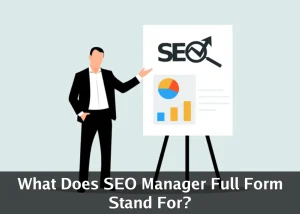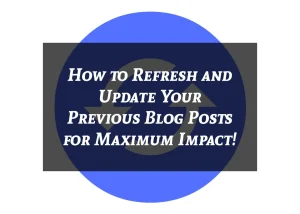Welcome to my comprehensive guide on how to get traffic using SEO. SEO (Search Engine Optimization) is a powerful tool that can help you get more visitors to your website. With SEO, you can improve your website’s visibility in search engine results pages. In this guide, I will provide you with an overview of SEO and its benefits, as well as step-by-step instructions on how to create an SEO plan, optimize your website for SEO, and track your SEO performance. Let’s get started!
What is SEO?
SEO (Search Engine Optimization) is the process of optimizing a website to increase the visibility of the website in search engine results pages. This means that when people search for a keyword related to your website, your website will appear higher in the search engine results pages (SERPs). SEO is used by businesses and organizations to get more people to visit their website and increase their online presence.
SEO involves optimizing both the content and structure of your website. This includes optimizing everything from the titles, headings, and meta descriptions of your website’s pages, to the images, videos, and links associated with your website. SEO also involves optimizing the internal links on your website, as well as the backlinks that point to your website from other websites.
Benefits of SEO
SEO can be very beneficial for businesses and organizations. It can help you reach more people, increase website traffic, and boost your online presence. SEO can also help you reach a targeted audience, as people who are searching for a specific keyword related to your website are more likely to be interested in what you are offering.
In addition, SEO can help you improve your website’s usability. By optimizing the structure and content of your website, you can make it easier for people to find the information they are looking for. This can help reduce your website’s bounce rate, as people are more likely to stay on your website if they can easily find the information they are looking for.
SEO Statistics
SEO can be a powerful tool for businesses and organizations. According to a recent study, businesses that use SEO are more likely to increase their website traffic and generate more leads than businesses that do not use SEO. Another study found that SEO can lead to a higher return on investment than traditional marketing efforts.
In addition, SEO can help businesses and organizations stand out from the competition. According to a recent survey, most consumers trust organic search engine results more than they trust paid ads. This means that businesses that use SEO are more likely to be seen by potential customers than businesses that do not use SEO.
SEO Strategy
When creating an SEO strategy, it’s important to focus on creating high-quality content that is relevant to your target audience. This means creating content that is informative, engaging, and provides value to your readers. You should also focus on optimizing your website’s structure, such as creating descriptive titles and meta descriptions, optimizing your images, and making sure your website is easy to navigate.
In addition, it’s important to optimize your website for mobile devices. According to a recent study, more than half of all web traffic comes from mobile devices, so it’s important to make sure your website is optimized for mobile devices. This includes making sure your website is responsive and that the loading speed is fast.
Creating an SEO Plan
Once you’ve created an SEO strategy, it’s time to create an SEO plan. An SEO plan outlines the steps you need to take in order to optimize your website for SEO. This includes researching keywords, optimizing your website’s content and structure, creating high-quality content, building backlinks, and tracking your SEO performance.
When creating an SEO plan, it’s important to set realistic goals and timelines. You should also make sure to keep track of your progress, so you can make sure you are on track to reach your goals.
SEO Tips
When optimizing your website for SEO, it’s important to keep a few tips in mind. First, it’s important to focus on creating high-quality content that is relevant to your target audience. This means creating content that is informative, engaging, and provides value to your readers.
In addition, it’s important to focus on optimizing your website’s structure. This includes creating descriptive titles and meta descriptions, optimizing your images, and making sure your website is easy to navigate.
It’s also important to optimize your website for mobile devices. This means making sure your website is responsive and that the loading speed is fast.
Finally, it’s important to research keywords. This means finding keywords that are relevant to your website, and that are being searched for by your target audience.
Researching keywords
When researching keywords, it’s important to find keywords that are relevant to your website, and that are being searched for by your target audience. To do this, you can use keyword research tools such as Google Keyword Planner and Moz Keyword Explorer. These tools will help you find keywords that are relevant to your website and that have high search volumes.
Once you’ve found the keywords you want to target, it’s important to create content that is optimized for these keywords. This means creating content that is informative, engaging, and provides value to your readers. You should also make sure to include the keywords in your titles, headings, and meta descriptions.
On-page SEO
On-page SEO refers to the process of optimizing the content and structure of your website in order to improve its visibility in search engine results pages. This includes optimizing everything from the titles, headings, and meta descriptions of your website’s pages, to the images, videos, and links associated with your website.
It’s important to make sure your website’s content is relevant to the keywords you are targeting. This means creating content that is informative, engaging, and provides value to your readers. You should also make sure to include the keywords in your titles, headings, and meta descriptions.
In addition, it’s important to optimize the structure of your website. This includes optimizing your website’s navigation, optimizing the internal links on your website, and making sure your website is easy to navigate.
Off-page SEO
Off-page SEO refers to the process of optimizing the backlinks that point to your website from other websites. This includes creating high-quality content, guest blogging, and building relationships with influencers in your industry.
When building backlinks, it’s important to focus on quality rather than quantity. This means finding websites that are relevant to your website and are likely to be visited by your target audience. You should also make sure that the backlinks point to pages that are relevant to the backlink.
In addition, it’s important to create high-quality content that is relevant to your target audience. This means creating content that is informative, engaging, and provides value to your readers. This will help you build relationships with influencers in your industry, and will make it more likely that they will link to your website.
Monitoring and tracking SEO
Once you’ve implemented your SEO plan, it’s important to monitor and track your SEO performance. This means keeping track of your website’s rankings in search engine results pages, as well as tracking your website’s traffic and conversions.
There are a number of tools you can use to track your SEO performance. These include Google Search Console, Moz Pro, and SEMrush. These tools will help you track your website’s rankings, traffic, and conversions, as well as providing you with insights into your website’s performance.
SEO Services
If you don’t have the time or resources to implement an SEO plan on your own, you can hire an SEO agency or consultant to help you. An SEO agency or consultant can help you create an SEO plan, optimize your website for SEO, and track your SEO performance.
When hiring an SEO agency or consultant, it’s important to make sure they have experience in optimizing websites for SEO. You should also make sure they have a proven track record of success, and that they are transparent about their methods and strategies.
Conclusion
SEO is a powerful tool that can help you get more visitors to your website. By following the steps outlined in this guide, you can create an SEO plan, optimize your website for SEO, and track your SEO performance. If you don’t have the time or resources to implement an SEO plan on your own, you can hire an SEO agency or consultant to help you.
I hope this guide has helped you understand how to get traffic using SEO. If you have any questions or need help creating an SEO plan, please don’t hesitate to reach out.




